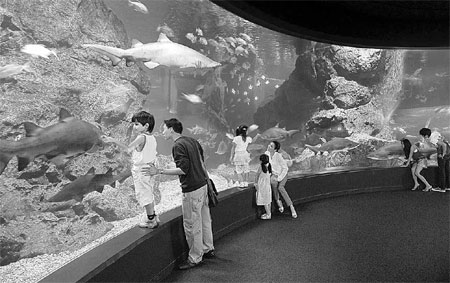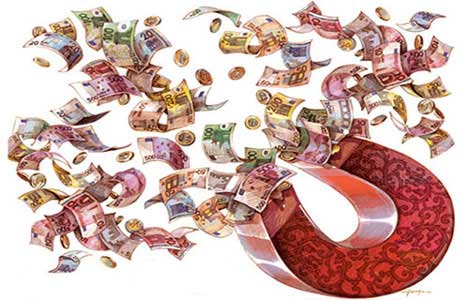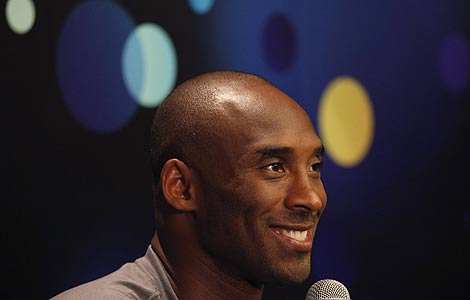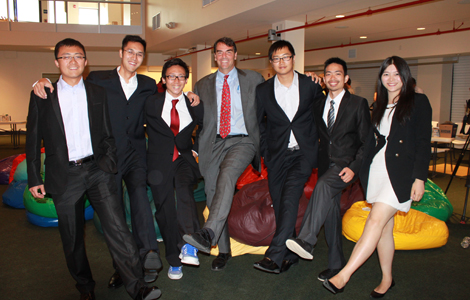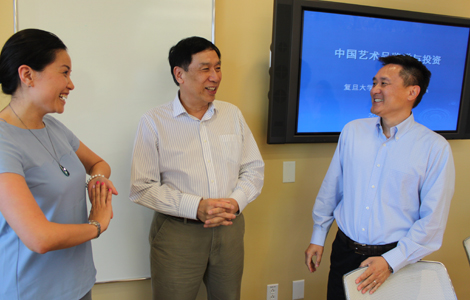Putting the art into the heart
Updated: 2013-08-05 07:18
By Cecily Liu in London,Chen Yingqun in Beijing and Qiu Bo in London (China Daily)
|
||||||||
|
Changfeng Ocean World is a top draw in Shanghai. Provided to China Daily |
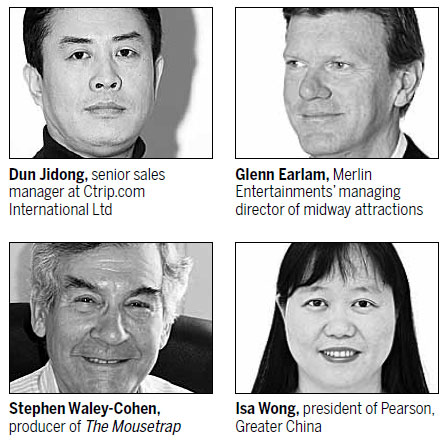
Diversified entertainment products gaining traction with urbanites
Higher income levels and more leisure time among urban dwellers are spawning a growing demand for art and entertainment activities in China.
Although diversified art and entertainment products have long been an established industry in developed nations, it is the resurgent demand as a result of the rapid urbanization in China that is now proving to be an irresistible draw for Western companies.
"Urbanization is one of the key factors that is driving entertainment market growth in China," says Jackson Wong, senior manager of KPMG China's technology, media and telecommunications practice.
"There has been a lot of real estate growth in China, but many of these new developments lack content and theme. Building entertainment venues around these developments will automatically help attract more people."
In the live performance sector, many globally renowned companies have already staged shows in China.
They include the world's longest-running play, The Mousetrap, which has been performed in London continuously since 1952.
In 2010, the play went to Shanghai for a two-week performance through a partnership between The Mousetrap Production Ltd and Shanghai Modern Theater Co.
It achieved immediate success and, since then, the Shanghai Modern Theater Co has produced the play in Chinese for a season each year, with its British partner's help.
"They knew of the popularity of Agatha Christie's work in China and believed, correctly, that it would be popular in China," says Stephen Waley-Cohen, who has been the show's producer since 1994.
Apart from The Mousetrap, Chinese urban residents have enjoyed many live performances from overseas, including the London Philharmonic Orchestra the London Symphony Orchestra and musicals including Mamma Mia, Cats and Notre Dame de Paris.
The value of China's performance market last year reached 60.3 billion yuan ($9.83 billion), a rise of 60 percent from 2011, the Ministry of Culture says.
Two other rapidly growing entertainment industries in China are film and TV. China's box office revenues reached $2.7 billion last year, a 36 percent year-on-year increase. This made China the world's second-largest film market just behind the United States and the world's third-largest filmmaker, the Motion Picture Association says.
Yang Shuting, a senior analyst at entertainment industry consultancy EntGroup Consulting in Beijing, says China's TV and film industries provide great opportunities for foreign companies whose creative content and production expertise are well liked by the Chinese audience.
"Chinese audiences' demand for imported TV series has become a consistent trend over the years, but recently the market for imported variety shows has rapidly expanded, reflecting domestic variety shows' inability to satisfy demand," Yang says.
"At the same time, China's protection of intellectual property rights for TV programs is strengthening, creating assurances for foreign TV companies in this trade. International TV programs are increasingly pursuing global expansion strategies now - and China is certainly a good market."
Yang says one popular model of cooperation in the film sector is co-production, where both parties contribute their expertise to the production process and share the risk of the investment.
Yang's comments are echoed by Meng Chao, 30, an independent film director, who says the production techniques and technologies of foreign companies are often appreciated by the Chinese film industry.
Meng says he believes a successful example is the California-headquartered Cameron Pace Group, which established a subsidiary in the port city of Tianjin to develop three-dimension film equipment and provide training for making 3D movies.
"One service the company's China subsidiary provides is a technology certificate system for 3D films that actually generates more market value for the company's existing technologies," Meng says.
In television, an increasingly popular method of cooperation is for Chinese companies to buy the Chinese production rights from a foreign reality show program, Yang says.
This cooperation model, Yang says, allows the Chinese partner to have the support from the foreign partner in the production process to keep quality consistent - and to learn from them.
One such example is The Voice of China, which is produced in the same format as The Voice of Holland, created by Talpa TV. Talpa TV subsequently sold the China production rights to Star Media and helped it produce a version for the Chinese audience in the same format and of the same quality as the original.
"The first series of The Voice of China was produced by Star in close cooperation with the Dutch executive producer Mark de Vink. For the second series our experts provided consultancy services," says Thomas Notermans, a spokesman for Talpa Holding.
"In our industry, know-how and quality of productions are much higher in Europe and the US than elsewhere. Since our market is small, we Dutch producers are very experienced in producing our formats abroad and keeping a good balance between the character of the original format and local (cultural) differences," Notermans says.
Another industry experiencing growing opportunities is publishing, because urbanization has increased people's average literacy levels and growing affluence has instilled in them a fascination for a wider range of topics, says Isa Wong, president of Pearson, Greater China.
"Urbanization is really drawing a lot more people into that reading population and creates a bigger size for the publishing industry to accommodate different interests in different areas," Wong says.
"With economic means improving, readers are exposed to a lot more things. International publishers can bring a different perspective, particularly for books such as travel, language learning, marketing, finance and management."
Pearson, which publishes mainly education books in China, already has 6,000 employees here. It sells tens of millions of books in China each year. Other international publishers actively expanding into China include Macmillan Publishers, Bertelsmann AG, and HarperCollins Publishers.
Tourism is also experiencing a growth, because urbanization increases people's curiosity of the outside world, says Dun Jidong, senior sales manager at the Chinese tourism operator Ctrip.com International Ltd.
"The lifestyle in rural areas is quite simple, but in cities people increasingly look for a more sophisticated lifestyle with more enjoyment. They want to experience the foreign lifestyle and try foreign food."
China's expenditure on travel abroad totaled $102 billion last year, the highest globally, United Nations World Tourism Organization statistics say.
Dun says that in the early days of international travel, packaged tours where five or eight countries are visited together were generally popular with the Chinese, because they saw such packages as economical in cost and time.
"As China urbanizes, people's demand for tourism becomes more sophisticated. More and more look for in-depth tours and increasingly they'd like to travel by themselves as opposed to with tour groups," Dun says.
Taking the Hong Kong market as an example, Dun says group tours that his company hosts only represent 10 percent of overall traveling.
"They are not there just to see Hong Kong, they want to spend their day properly with a relaxed mindset."
Dun says that on average many would choose to travel abroad twice a year, and also travel three to four times within China.
"Living in urban cities can be tiring sometimes, because work tends to be busy and lifestyle is hectic, so relaxation in the form of tourism has become popular," Dun says.
China's urban art scene has also grown over the years, to host many prestigious international art shows, fairs, galleries and auction houses.
"More and more Chinese are developing a knowledge and an interest in the arts," says Hadrien De Montferrand, who opened an independent contemporary art gallery in Beijing using the experience he gained from working in European auction houses for more than seven years.
He says that he opened the Hadrien de Montferrand Gallery because he saw an opportunity to build a bridge between China and Europe's art markets.
He says over the years the gallery's customer base has grown, particularly for young and enthusiastic Chinese art collectors.
Meanwhile, urban China is witnessing an increasing number of foreign theme entertainment venues and attractions, such as theme parks, zoos and aquariums.
Dennis Speigel, president of International Theme Park Services Inc, a US consultancy, says that he believes China will become the most theme-park-populated country over the next 25 years because of its dense population spread, especially in urban cities.
"Urbanization fosters theme park development, typically providing green-field sites on the fringes of cities which, through time and growth of the cities, makes the theme parks more geographically centralized," Speigel says.
Ghassan Ayoubi, executive director at the Jordan-headquartered digital content production company Rubicon Group Holding, says that international theme entertainment venues' expertise in story telling gives them an advantage in the Chinese market.
Ayoubi says that once the story ideas are put in place, international investors should work on integrating their concepts and technology with the local legal framework and suppliers in China to make sure the desired venue can be realized.
The most talked about foreign theme park is the Disney one set to open in Shanghai in 2015 and, on a smaller scale, attractions such as Shanghai's Changfeng Ocean World and Madame Tussauds in Shanghai and Hong Kong operated by the UK's Merlin Entertainment Group.
"China is a very exciting and dynamic market. The feedback we have had, both from our existing attractions and from the research we have done across China, shows that Chinese tourists love our brands, and really appreciate the quality of what is on offer," says Glenn Earlam, Merlin Entertainment's managing director of midway attractions.
"The combination of urbanization and the phenomenal and consistent economic growth in China has resulted in a growing middle class looking for new quality experiences and ways in which to enjoy their growing wealth," Earlam says.
He says Merlin also plans to open a new Madame Tussauds in Wuhan this October, and a cluster of three attractions in Chongqing, which are a Madame Tussauds, a Sea Life aquarium and a Legoland Discovery Centre, from 2015 onwards.
As urbanization brings the Chinese wealth and taste, art and entertainment activities are no longer considered a luxury, but an integral part of people's daily lives, as is reflected by Chinese cities' architecture, says Simon Poole, senior associate director of British architecture firm Benoy.
Poole says one example of a Benoy project is Rio Carnival in Qingdao, where his team has integrated a series of retail based streets and squares with performance spaces, public squares, a theme park, two hotels and a convention center.
"This is not just a re-branding exercise but a new approach to the fundamental design of retail-led mixed use developments," Poole says.
For example, shopping malls in China are no longer just used for shopping, but for urban people to "meet friends, watch films, exercise, stroll around and dine out", he says, adding such a change creates opportunities for Western architects.
"As the line between retail and leisure blurs, Benoy's award-winning innovative approach stands us in good stead for these exciting times ahead," Poole says.
Contact the writers through chenyingqun@chinadaily.com.cn
(China Daily 08/05/2013 page16)
Most Viewed
Editor's Picks

|

|

|

|

|

|
Today's Top News
China's obesity rate on the increase
Washington Post sold to Amazon's founder
Fonterra says sorry for 'anxiety'
Detroit Symphony brings China to NYC
Service sector drives up growth
Globalization of Chinese culture becomes hot topic
Huawei expands in London
Web 'answer to export woes'
US Weekly

|

|
